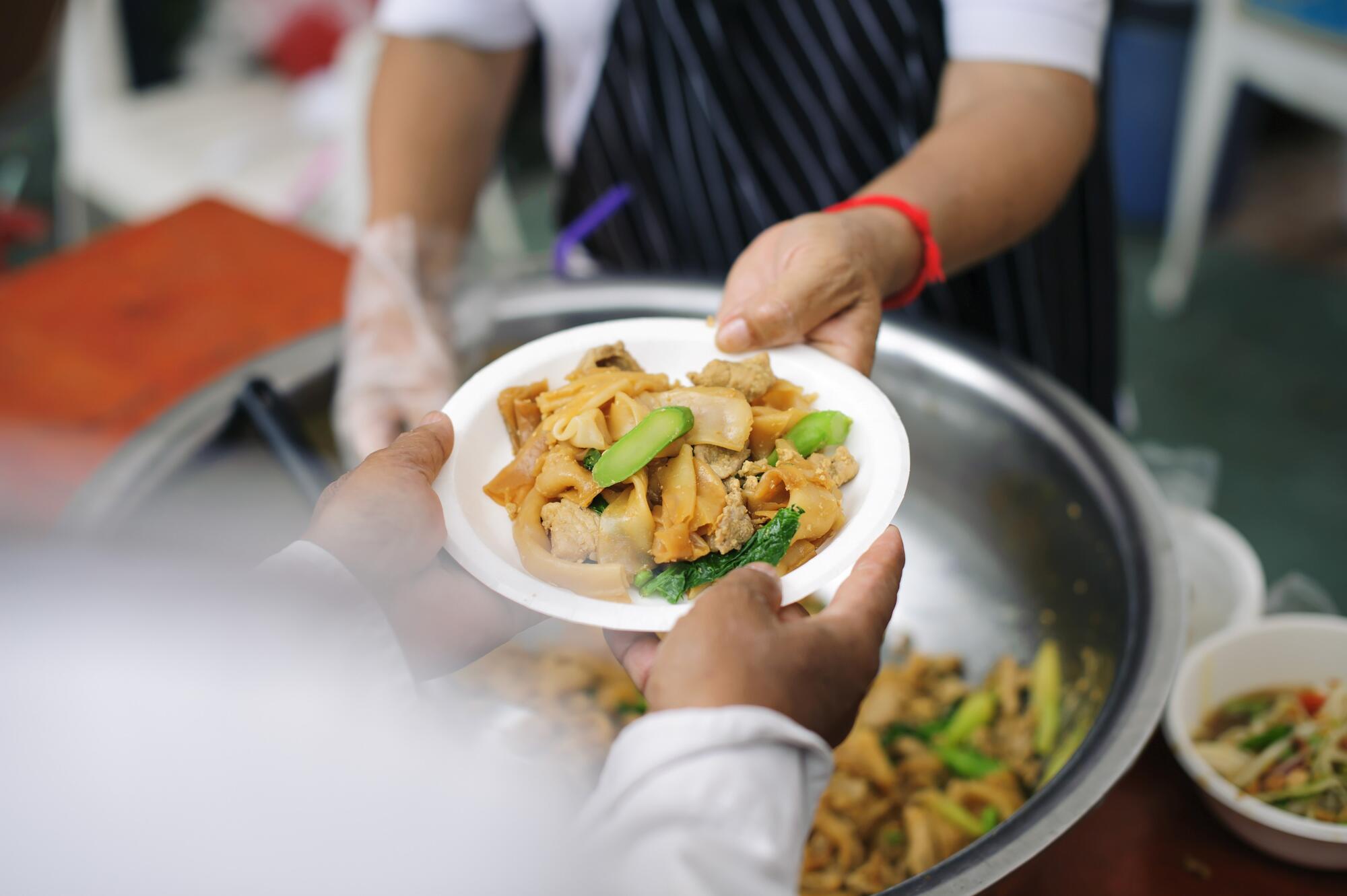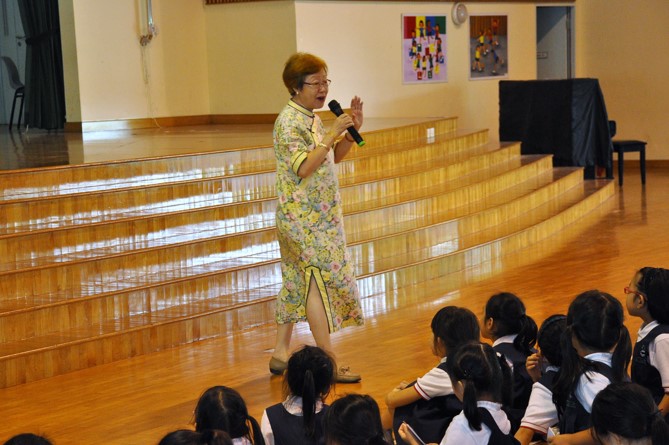Tee Hun Ching, a mother of two, is a copy editor and freelance journalist.
For the second December in a row, we took our kids on a year-end trip with a twist last year. Together with a group of friends, we visited a Catholic missionary community in Manila that works with needy families and children in a few slum areas.
We ran into a hurdle soon after we landed. As we made our way slowly from the airport to the hotel along the traffic-clogged streets, the van we were in broke down. We were left stranded by the roadside with our luggage as we tried to book a cab in the evening rush hour.
My son, who had been looking forward to the return visit, defaulted instantly to his complaint mode. “Why are we so unlucky?” my 12-year-old grumbled. His nine-year-old sister also made it known that she was hungry.
The irony did not escape me. Here we were, paving the way for our children to bring some warmth and light to those who have truly been dealt a bad hand in life. Yet their own well-being always takes priority. It reinforced our decision to make this a regular trip. In helping others, we would also venture beyond our comfort zone and learn to count our blessings.
Sowing the seeds of compassion
My husband and I had our first taste of a holiday with a difference in 2017, when we visited the mission’s headquarters in a barren, remote region of Kenya called Turkana. Over two weeks, we saw how its members, many of whom come from other parts of the world, devote their lives to helping the impoverished tribes in the inhospitable land.
It opened our eyes to how each of us can make a difference if we exercise our skills and resources in the service of others, whether it is in designing a dispensary or sponsoring a block of latrines that serves a settlement of thousands. We came back with a renewed sense of gratitude not just for all that we have, but also for being in a position to help others. It gave us the impetus to imbue our children with the same.
We kept in touch with the community, which has a mission house in Manila, too. The Philippines is a much easier journey to make than Africa, so we heeded the call to “come and see” with our kids and a few other families in 2018.
We were there for just five days and couldn’t do or help much. But that was enough to make us realise how much we take things for granted in Singapore. On our first night there in 2018, my kids were troubled by a sign in the basic but clean hotel, which warned against drinking water from the bathroom tap. “What would happen if I drank some of it by accident while brushing my teeth?” my daughter was anxious to know.
The dirt and stench that greeted us in some of the neighbourhoods also took some getting used to. Our missionary friends work in certain parts of four slum districts of markedly different sizes. The smallest is home to about 250 families, while some 10,000 people live cheek by jowl in the largest, a sprawling shanty town built on a landfill. Many families live in ramshackle homes no bigger than the living room of an HDB flat and have to take turns to sleep. Others can barely remember the last time they had meat that wasn’t scavenged from food waste
Taking joy in spreading joy
We do a few key things before we head over to Manila. First, we get the missionaries to send us a list of things that the kids they work with would need or want. These range from colour pencils for the younger ones to mathematical sets for the teens, as well as backpacks, stationery and face towels for all. We would source for the items and then sort and pack them into goodie bags as Christmas presents.
While there, we visit some families in the slums, buy and distribute food rations for the residents, as well as organise Christmas parties and games for each neighbourhood. Our children went along with the activities in 2018 but stayed mostly on the sidelines as curious observers.
At our prompting, they stepped up their involvement last December. They used part of their savings to buy some colouring sets and made origami that could be blown up to form paper balls as fun gifts. A young couple in our group of 30 also taught the Singapore kids some action songs they could perform during the parties. These turned out to be great ice-breaking routines that got our guests laughing and dancing along.
We sometimes wonder how helpful a few days spent throwing parties can be. But the missionaries assure us that our presence makes a difference. Many of the families, we are told, are heartened to see there are folks who bother to bring them gifts and food during one of the country’s most important holidays. After all, Filipinos are known to celebrate the longest Christmas season in the world, with festivities kicking off in September.
A young mother once teared as she thanked us for the set meals we bought for a party. It was the first time she and her children had tasted actual chicken in months, having long subsisted on “pagpag” – food recycled from discarded scraps or expired produce. This year, my husband noted how the children left gleaming bones with nary a speck of meat after they were through with their fried chicken meals.
But our visits are not meant to be one-off, feel-good trips. Instead, they give us an avenue to contribute even after we head home, such as paying for basic necessities or medical help to sustain some of the families we have come to know.
Receiving more than we give
Like many of their peers in Singapore, the youngsters in our group are blessed with a comfortable life but not often attuned enough to appreciate their good fortune. Yet they, too, have been struck by how generous and seemingly content the locals are. While we bring food and presents, they have given us something far more precious – valuable life lessons.
One teenager in our group recalled how touched he was when a young Filipino boy offered to share his small haul of candy from a party game with him. “It made me feel ashamed of all those times when I didn’t share things with my siblings,” said the 14-year-old.
My daughter has become more conscious of how she can contribute in little ways, such as setting aside fairly new toys and unused stationery “for the Manila kids”.
The memory of a food distribution exercise in a poor neighbourhood remains seared in my son’s mind. We were told to buy rations for 50 families, but a long queue remained even after the food ran out. “I expected them to complain and get angry. Instead, they still smiled and thanked us,” my son recounted. “It made me realise how they are grateful for what little they have.”
It hasn’t stopped him from whining about life’s little inconveniences and setbacks, of course. Neither are we expecting an instant or total conversion. The hope is that these personal encounters will open the eyes, hearts and minds of the Singapore youngsters in our group to the less fortunate, in and beyond Singapore. And through such experiences, we hope to pave the way for an others-centred life in an increasingly self-absorbed world.






